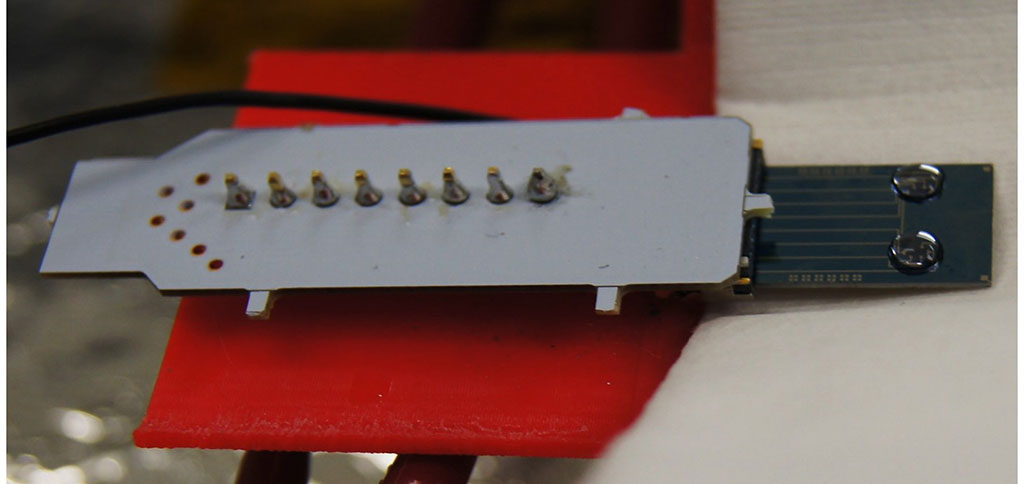New Method Detects Different Types of Dangerous Viruses or Disease Markers from Single Measurement
Posted on 24 May 2022
For many parts of the world that do not have access to high-tech labs found in hospitals, detecting viruses such as hepatitis C (HCV) – could save millions of preventable deaths worldwide. Now, scientists have developed a method to detect viruses in very small volumes. The work follows a successful Innovate UK project developing graphene for use in biosensors – devices that can detect tiny levels of disease markers. Biosensors such as this could be used at the point-of-care - opening effective healthcare in difficult-to-reach settings.
What makes the detection of viruses in such small volumes possible is the use of a material called graphene. Graphene is extremely thin - only one atom thick - making it very sensitive to anything that attaches to it. By carefully controlling its surface, scientists at Swansea University (Swansea, UK) were able to make the surface of graphene sensitive to the HCV virus. In the future, it is hoped that multiple biosensors can be developed onto a single chip – this could be used to detect different types of dangerous viruses or disease markers from a single measurement.

“Highly sensitive and simplistic sensors have never been more in demand with regards point-of-care applications,” said Ffion Walters, Innovation Technologist at Swansea University’s Healthcare Technology Centre. “This collaborative project has allowed us to realise proof-of-concept real-time sensors for HCV, which could be especially beneficial in resource-limited settings or for difficult-to-reach populations.”
“At Swansea University, we have now developed graphene-based biosensors for both Hepatitis B and C. This is a major step forward to a future single point of care test,” added Professor Owen Guy, Head of Chemistry at Swansea University.
Related Links:
Swansea University













